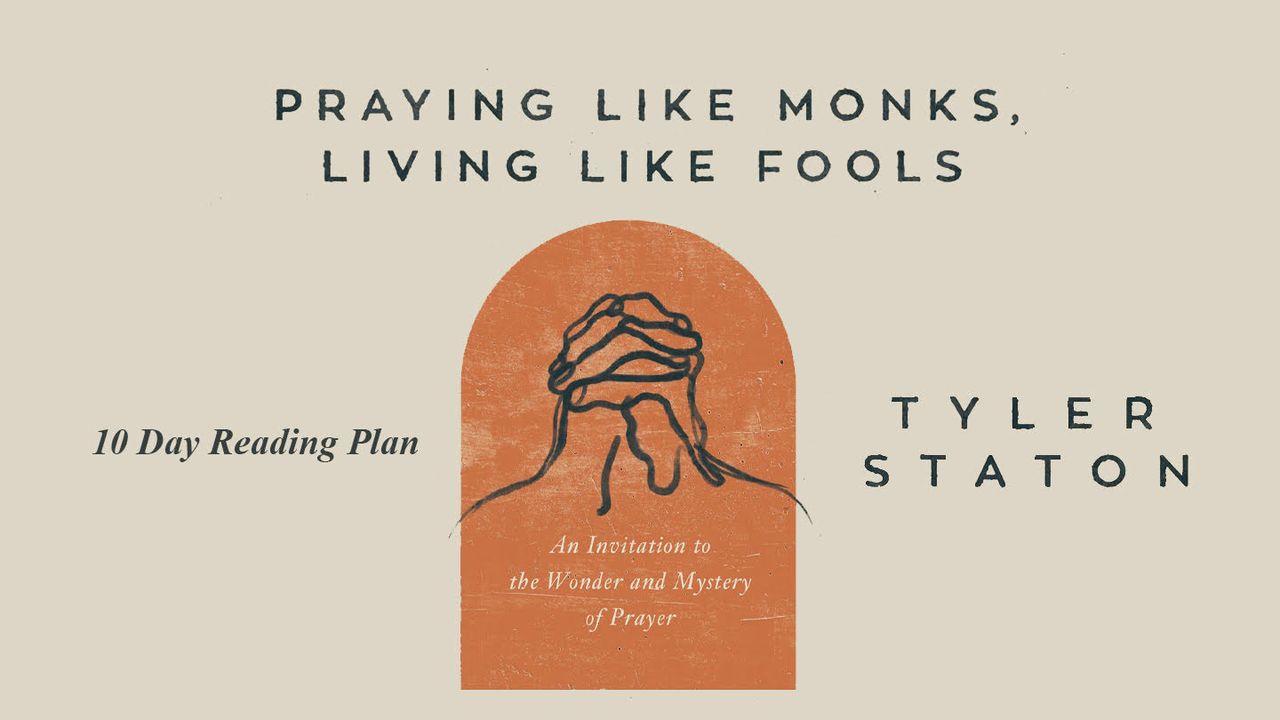Praying Like Monks, Living Like FoolsSample

Confession
Believing in the existence of God has never really been the hang-up for us humans. Across cultures and eras, the existence of something bigger than us has always been the popular opinion.
The hang-up is, and has always been, trusting the God we believe exists.
That’s why trust—or a lack thereof—is at the heart of the Genesis creation story. Pretty early on in the story, Adam and Eve started to suspect that God was holding out on them. They plucked the forbidden fruit in an attempt to get to a full, abundant, happy life apart from God. They trusted themselves, not the God they believed in.
That is what the Bible calls sin. Sin is shorthand for any attempt to meet our deep needs by our own resources.
It is not an accusation or a condemnation; it’s just a diagnosis. It’s a trip to the doctor’s office where you describe your symptoms and discover that “there’s a name for this disease.” And fortunately for us all, there is a doctor on standby ready to offer healing.
Confession is how we turn to Jesus, look him in the eye, and take him up on his power to heal. In this, again, David is our role model. “You have searched me, Lord, and you know me,” he wrote in Psalm 139. David openly invited the Spirit of God to search him, to dig through his interior life and uncover any sin he found there. He even celebrated it.
When we keep our deepest needs and secrets hidden, we are essentially saying, “Jesus’ victory is not enough. It’s not enough for me. Not enough for this. I just need more time. I can sort this out on my own.” How do we combat that sinful narrative? Confession. We let David’s words inspire our words. We take David’s ancient prayers as the script for our current ones. You’ll be hard-pressed to find a single one of his prayers that didn’t involve undressing himself before God.
Confession is a terrifying gift, which sounds like a contradiction because it is. We say we believe in grace, but it is terrifying to actually trust that grace will be God’s response to our sin. Yet somehow, through confession, the very parts of our stories we most want to edit, or erase altogether, become the very parts of our stories we’d never take back and never stop telling. Terrifying, yes, but what a gift…
To Practice: Pray confession in three simple movements: Searching, Naming, and Receiving. First, like David, invite God to search your heart. Next, name whatever you recognize in yourself, big or small, that is out of alignment with his character. Finally, receive his forgiveness, which always outruns your failure and mine.
Scripture
About this Plan

Prayer is the source of Jesus's most astonishing miracles and the subject of his most audacious promises, and yet most people find prayer to be boring, obligatory, disappointing, confusing, or all the above. If you relate, this 10-day plan, based on Tyler Staton's newly released book by the same name, invites you to rediscover the forms and facets of prayer that might change the way you think of it forever.
More
We would like to thank HarperCollins/Zondervan/Thomas Nelson for providing this plan. For more information, please visit: https://www.zondervan.com/
Related Plans

Real. Loved. Strengthened: 7 Days With God

The Single Season

Where Are You? A Theology of Suffering

Marry Me

Parenting Through God’s Lens: Seeing Your Child the Way God Does

The Invitation of Christmas

The Father Lens: Helping Your Kids See Who God Is Through Who You Are

Grace & Truth

Deep Roots, Steady Faith
